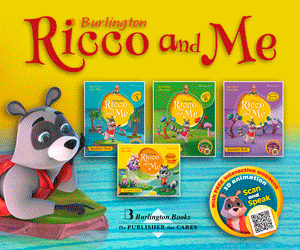By Katie Quartano - Palso
When you ask a young child what they would like to become when they grow up,very often the reply will be “a teacher”. This reflects the fact that
teachers play a very important part in a child’s life and have a great deal of influence over them.
Teachers are role models for their students; they assure them, motivate, guide and inspire them, not only in matters of learning, but also in matters of life. Whatever teachers do and say has a huge impact on children,and teachers’ behaviour goes a long way towards shaping the kind of people
their students will evolve into. It is important not to let the pressure of giving the fundamentals of English grammar and vocabulary become so high that the larger objective of truly educating children to become people who add value to society is lost.
One area where you as a teacher can use your influence in class to help
create an integrated society and break down barriers is to raise awareness about people with disabilities. Not many of you will have a child in your class who uses a wheelchair, but you can still provide children with the information necessary to allow them to put themselves in other people’s shoes, to understand others and to feel what others feel.
The Disabled Access Friendly campaign can help you do this by providing
free downloadable teaching material and graded reading texts that can
be used in class for skills building as well as examination practice, but that
will at the same time raise awareness about issues affecting people with
physical disabilities (www.disabled-accessfriendly.com).
However let us now consider the possibility that you do have a student, a
girl, who has mobility problems or who uses a wheelchair in your class.
As a teacher, if you model appropriate ways to support this child, the other
children in the class will learn to be helpful and how to react with empathy.
Treat her in the same way you treat all children in your classroom, but in your own mind be careful to differentiate between what is special treatment and what is simply a case of understanding this child’s situation. For example, remember that getting to class on time may depend on many things beyond her control e.g. the lift working, the pavement being clear of obstacles and parked cars.
Remember she may be on medication which may mean she is tired, inattentive or unable to concentrate fully. This girl is not asking for special privileges, but she will need to be compensated for her disability. For example this might mean providing a desk that is high enough off of the ground so she can roll her wheelchair comfortably underneath. (It would be nice if this were a desk for two, so she could sit with a friend).
Also you will need to make sure that she can come easily to the front of the class, just like the rest of the children, so keep the aisles clear of objects that might make this difficult for her.
By showing your students that you have thought in advance what might
make life easier for this girl in your classroom, you will encourage them
to think in advance what might things easier for her in other areas
too. By modelling appropriate ways to support this girl, other children in the class will learn how to be helpful, rather than react with awkwardness
or even indifference, and to accept differences without prejudice.
Demonstrate that you don’t assume she requires assistance, but always ask her first if she would like your help before giving it. When you talk to her for any length of time, crouch down so you are talking face to face, don’t lean on her wheelchair, don’t pat her on the head, and definitely don’t move her wheelchair, whether she is using it or not, without asking her first.
Τελευταία νέα
- ΠΣΚΙΚΞΓ: Ατόπημα Χατζηθεοδοσίου κατά των Κέντρων Ξένων Γλωσσών
- EUROPALSO Εγκύκλιος 11/07/2025: Νέο Πρόγραμμα ΔΥΠΑ για εργαζόμενους και ανέργους – Απογραφή ΚΞΓ – Εξετάσεις Ενηλίκων – WaterFun WaterPark – Νέες Παροχές για ΚΞΓ ESB – Απενεργοποίηση κωδικών E-Europalso – Υποχρεώσεις Ιουλίου-Αυγούστου 2025
- Το 1ο Burlington Community Festival - Μια μέρα έμπνευσης, δημιουργικότητας και χαράς!
- EUROPALSO - Εγκύκλιος 27/06/2025: Απογραφή ΚΞΓ – Νέο Πρόγραμμα ΔΥΠΑ για εργαζόμενους και ανέργους – Εξετάσεις Ενηλίκων – WaterFun WaterPark – Βεβαιώσεις Σπουδών Society – Νέες Παροχές για ΚΞΓ ESB – Απενεργοποίηση κωδικών E-Europalso – Υποχρεώσεις Ιουλίου-Αυγούστου 2025
- EUROPALSO - ΦΟΡΟΛΟΓΙΚΕΣ ΥΠΟΧΡΕΩΣΕΙΣ ΙΟΥΛΙΟΣ & ΑΥΓΟΥΣΤΟΣ 2025
- EUROPALSO - Νέο Πρόγραμμα ΔΥΠΑ – Με επιδότηση €750
- EUROPALSO: Προσωπικός Αριθμός – Τι Είναι – Πως Εκδίδεται
- EUROPALSO - φορολογικές υποχρεώσεις ιούνιος 2025
- EUROPALSO: Απογραφή υφιστάμενων αδειών ΚΞΓ <75 σε πληροφοριακό σύστημα OpenBusiness έως 1/12/2025
- EUROPALSO Εγκύκλιος 13/06/2025: Απογραφή ΚΞΓ σε OpenBusiness – WaterFun WaterPark – Βεβαιώσεις σπουδών για ΚΞΓ Society – ESB Online Exams for Adults – Νέες Παροχές για ΚΞΓ ESB – Advisory Offices – Υποχρεώσεις Ιουνίου 2025




